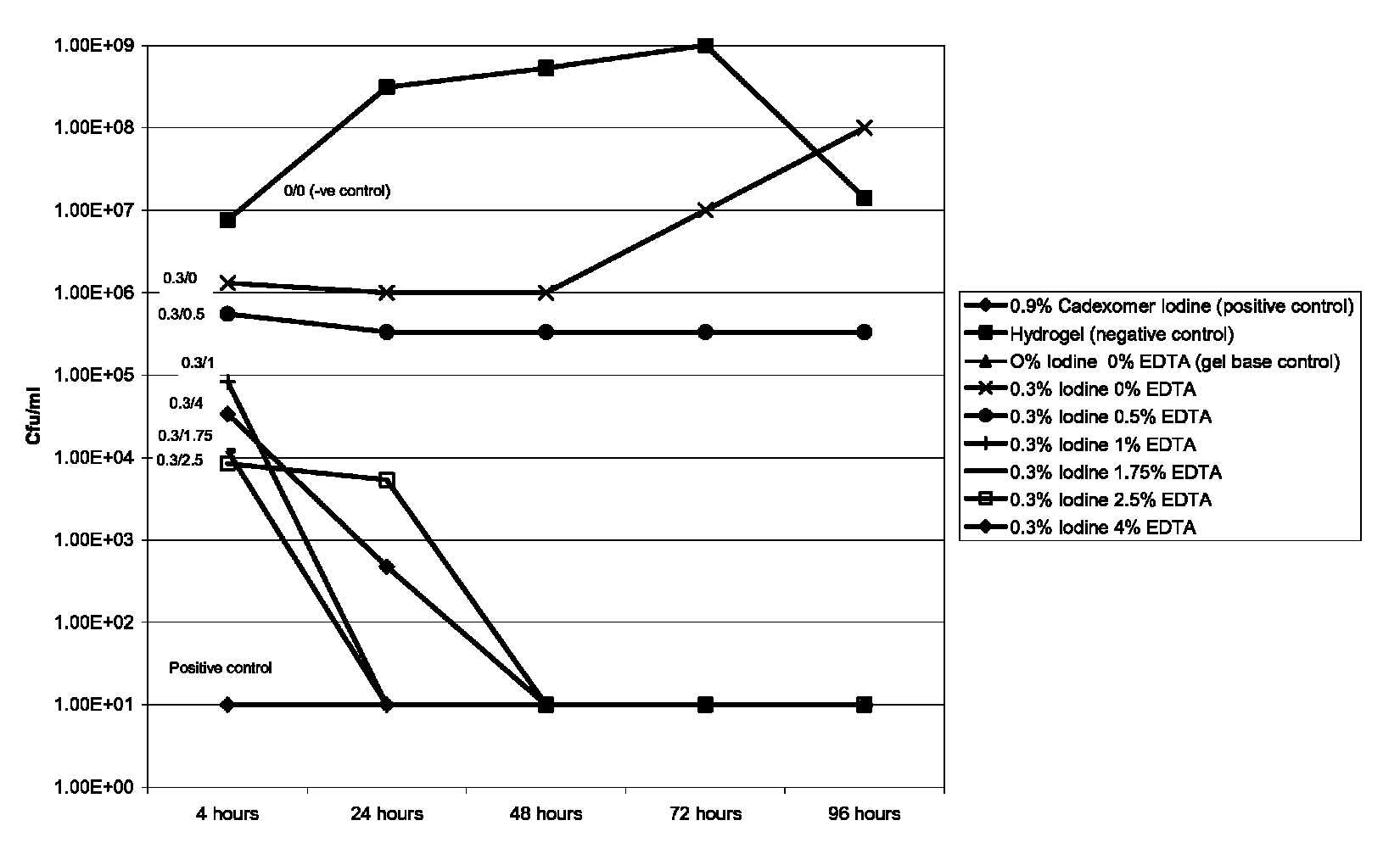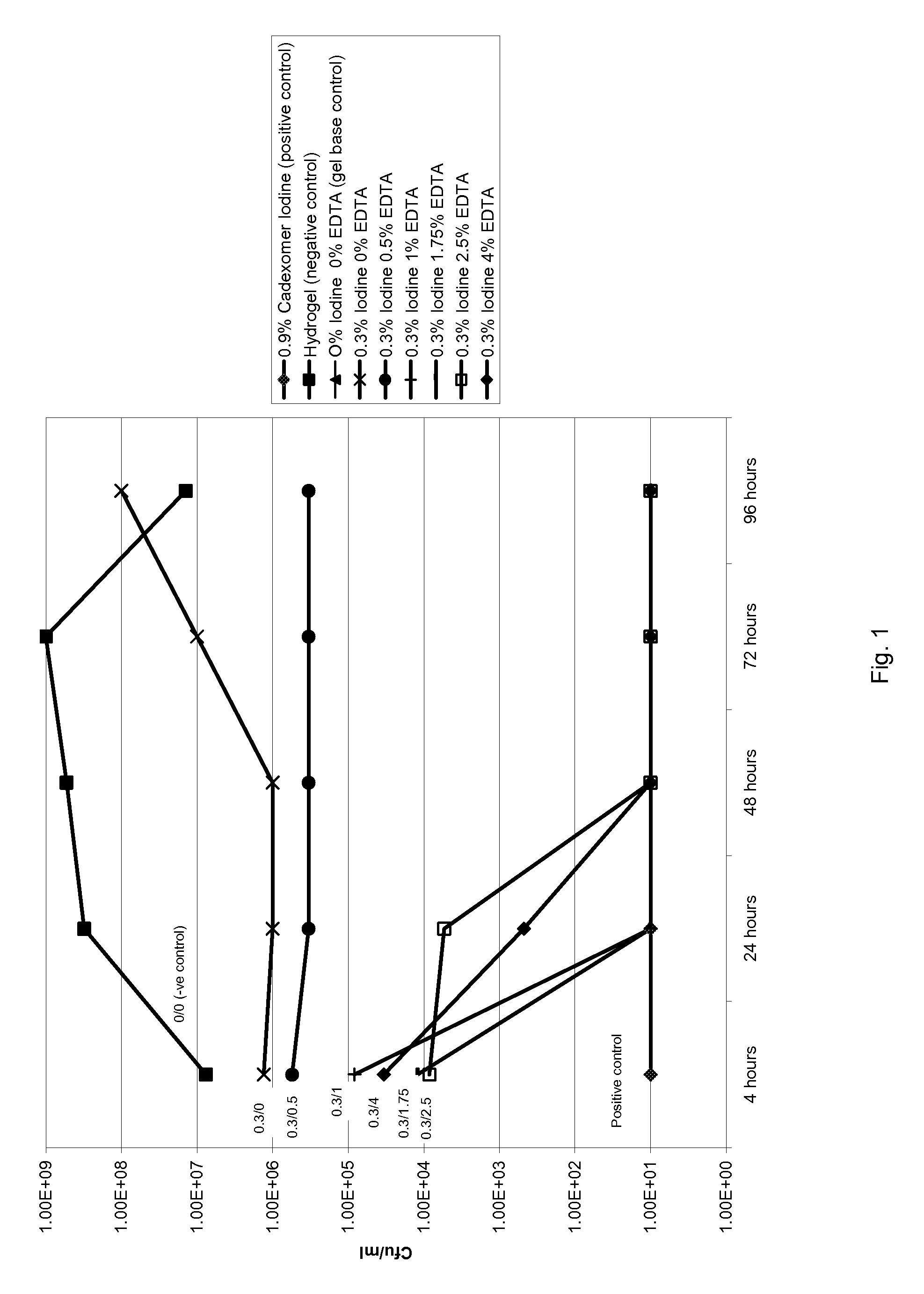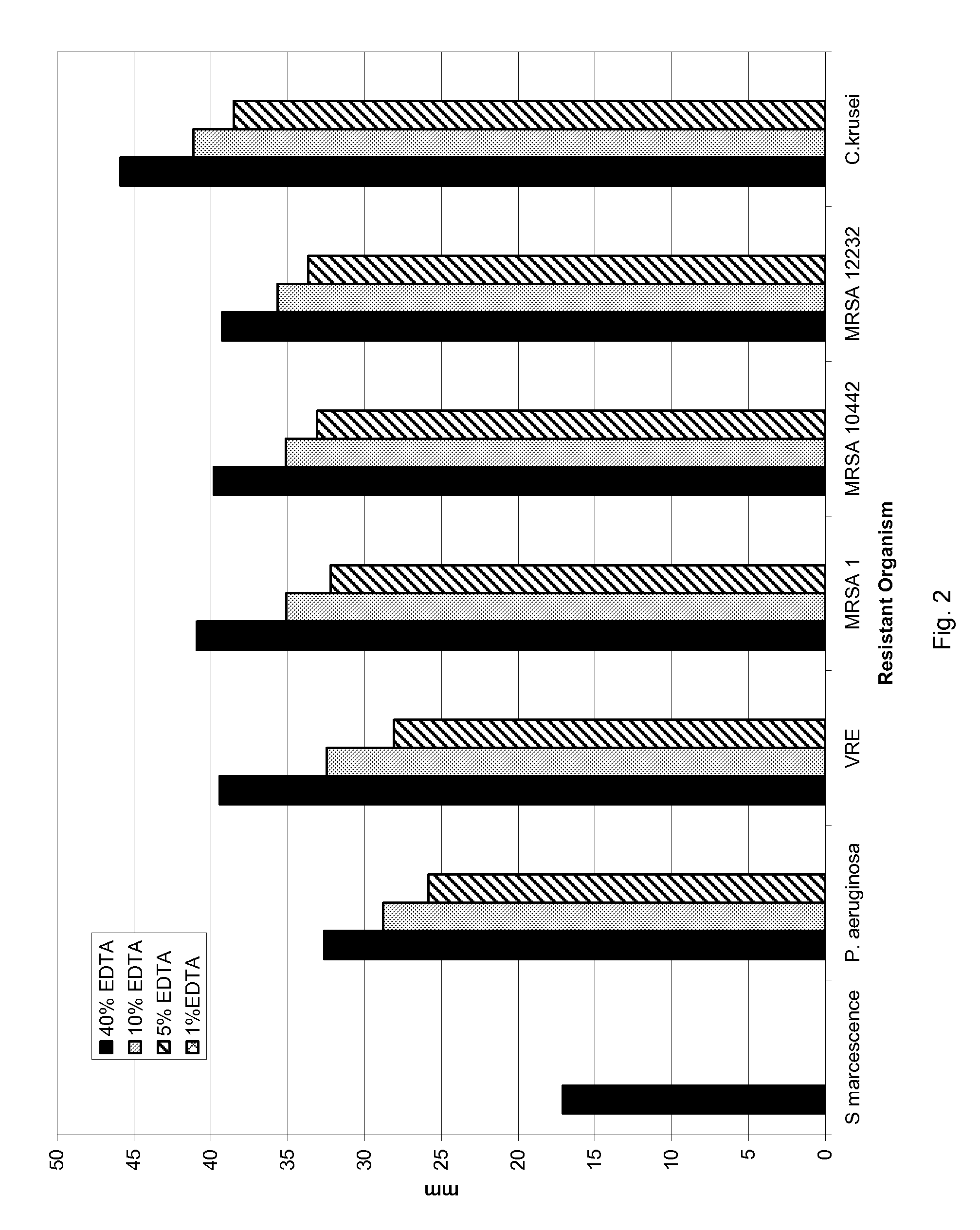Antimicrobial composition
a technology of antimicrobial composition and composition, which is applied in the direction of drug composition, antibacterial agent, peptide/protein ingredient, etc., can solve the problems of antiseptic agents prone to react and obstacles to making effective antimicrobial composition
- Summary
- Abstract
- Description
- Claims
- Application Information
AI Technical Summary
Benefits of technology
Problems solved by technology
Method used
Image
Examples
example 1
Effect of EDTA on Iodine
[0024]Compositions containing iodine and EDTA were prepared by making a pair of aqueous gels (see Table 1 for Gel A and Table 2 for Gel B) which were intimately mixed at the point of use. Each gel was made by preparing an aqueous solution containing all of the appropriate water-soluble parts according to the formulations below and then adding a slurry of a non-ionic cellulosic viscosifier (hydroxyethylcellulose) in propylene glycol.
[0025]
TABLE 1Component% w / wWaterTo 100Propan-1,2-diol10Hydroxyethylcellulose3.86Sodium iodate0.16Citric acid3.99di-sodium phosphate15.06
[0026]
TABLE 2Component% w / wWaterTo 100Propan-1,2-diol10Hydroxyethylcellulose4.14Sodium iodide0.59Ethylenediaminetetraacetic0.1-4.0acid tetra-sodium salttetrahydratePhosphoric acidAs necessary to adjustaqueous phase to ph 5.5
[0027]A commercially available cadexomer iodine ointment was present as a positive control as it contains 0.9% iodine. Intrasite is an amorphous hydrogel and was present as a ne...
example 2
Zones of Inhibition with Tetra Sodium EDTA
[0031]Seven antibiotic resistant microorganisms were used to evaluate the efficacy of EDTA in killing bacteria and yeasts grown on agar. For this experiment, filter paper discs were soaked in EDTA at concentrations ranging from 0.1-40%. EDTA was made up by dissolving it in an appropriate amount of sterile double distilled water. The filters were then added onto Muller Hinton agar which had been inoculated with a microorganism under study for 24 hours at 35° C. All microorganisms were tested twice.
[0032]The results in FIG. 2 show that the “zones of inhibition” generally ranged from about 20 to 43 mm (including disc 13 mm). Zones were higher with increasing levels of EDTA indicating that EDTA alone is an effective antiseptic agent.
example 3
Zones of Inhibition with EDTA
[0033]Poloxamer F127 hydrogels (Univar, Basildon, Essex, UK) are di-block co-polymers of polyoxyethylene and polyoxypropylene that demonstrate thermo-reversible gelation properties. At temperatures below 15° C., poloxamer is liquid and fully miscible with water but changes to a firm gel at temperatures in excess of 15° C. Poloxamer encourages bacteria to exhibit a more clinically relevant biofilm phenotype. In The Use of Poloxamer Hydrogels for the Assessment of Biofilm Susceptibility Towards Biocide Treatments. Gilbert P., Jones, M. V., Allison, D. G., Heys, S., Maira, T., Wood, P. Journal of Applied Microbiology (1998; 85:985-990), Gilbert, et al., determined that P. aeruginosa cells grown on poloxamer hydrogel (biofilm form) express outer membrane proteins between 78 and 87 kDa, which are not evident in cells grown on standard nutrient agar (‘planktonic’). Consequently, poloxamer gel cultures mimic many of the properties of biofilm-grown P. aeruginosa...
PUM
| Property | Measurement | Unit |
|---|---|---|
| pH | aaaaa | aaaaa |
| volume | aaaaa | aaaaa |
| temperatures | aaaaa | aaaaa |
Abstract
Description
Claims
Application Information
 Login to View More
Login to View More - R&D
- Intellectual Property
- Life Sciences
- Materials
- Tech Scout
- Unparalleled Data Quality
- Higher Quality Content
- 60% Fewer Hallucinations
Browse by: Latest US Patents, China's latest patents, Technical Efficacy Thesaurus, Application Domain, Technology Topic, Popular Technical Reports.
© 2025 PatSnap. All rights reserved.Legal|Privacy policy|Modern Slavery Act Transparency Statement|Sitemap|About US| Contact US: help@patsnap.com



